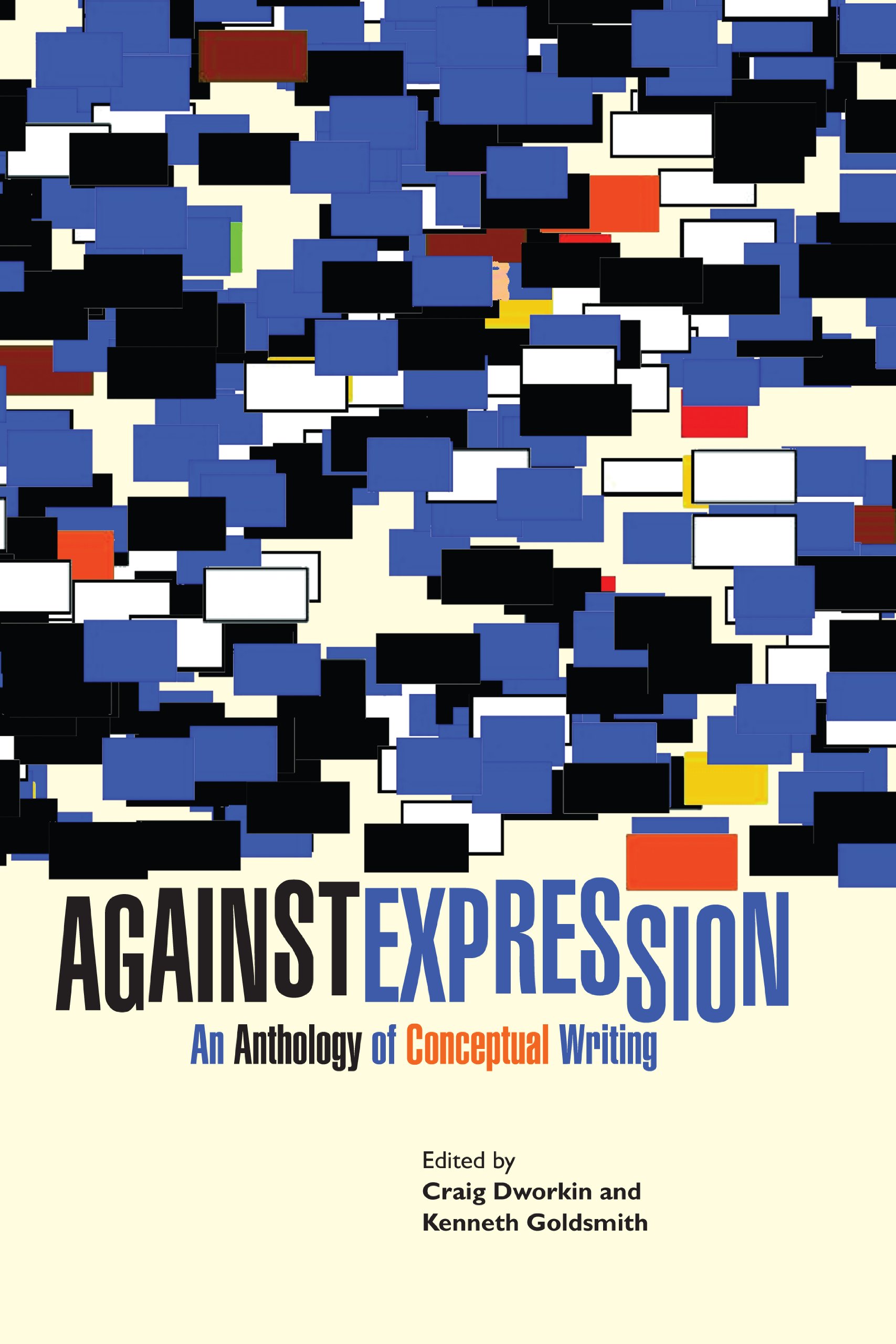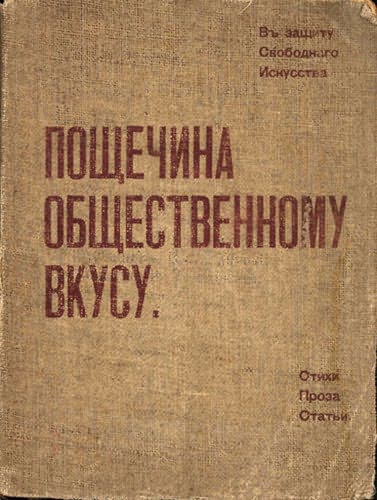Craig Dworkin, Kenneth Goldsmith (eds.): Against Expression: An Anthology of Conceptual Writing (2011)
Filed under poetry | Tags: · avant-garde, conceptual writing, concrete poetry, language, literature, oulipo, poetry, uncreative writing

“In much the same way that photography forced painting to move in new directions, the advent of the World Wide Web, with its proliferation of easily transferable and manipulated text, forces us to think about writing, creativity, and the materiality of language in new ways.
In Against Expression, editors Craig Dworkin and Kenneth Goldsmith present the most innovative works responding to the challenges posed by these developments. Charles Bernstein has described conceptual poetry as “poetry pregnant with thought.” Against Expression, the premier anthology of conceptual writing, presents work that is by turns thoughtful, funny, provocative, and disturbing.
Dworkin and Goldsmith, two of the leading spokespersons and practitioners of conceptual writing, chart the trajectory of the conceptual aesthetic from early precursors including Samuel Beckett and Marcel Duchamp to the most prominent of today’s writers. Nearly all of the major avant-garde groups of the past century are represented here, including Dada, OuLiPo, L=A=N=G=U=A=G=E, and Flarf to name just a few, but all the writers are united in their imaginative appropriation of found and generated texts and their exploration of nonexpressive language. Against Expression is a timely collection and an invaluable resource for readers and writers alike.”
Publisher Northwestern University Press, 2011
Avant-garde & Moderism Collection series
ISBN 0810127113, 9780810127111
593 pages
Reviews: Brian M. Reed (American Book Review), Stephen Burt (London Review of Books), Peli Grietzer (LA Review of Books), Richard Kostelanetz (Mayday), Andrew McCallum (English in Education), Samuel Vriezen’> (deReactor, NL).
Commentary: Sam Rowe (Full Stop).
Interview with Craig Dworkin (Katie L Price, Jacket2).
PDF (updated on 2014-12-12)
Comments (5)A Slap in the Face of Public Taste: In Defense of Free Art: Poems, Prose, Essays (1912) [Russian]
Filed under book | Tags: · avant-garde, cubism, futurism, literature, poetry, russia

A famous Russian futurist book is bound in sackcloth and printed on wrapping paper. It opens with a manifesto signed by David Burliuk, Alexander Kruchenykh, Vladimir Mayakovsky, and Viktor Khlebnikov, followed by two essays by David Burliuk on cubism and on texture [both signed Nikolai Burliuk], verse by Khlebnikov and Benedikt Livshits, and four prose sketches by Wassily Kandinsky.
Poshechina obshestvennomu vkusu. V zashchitu svobodnogo iskusstva. Stikhi, proza, stat’i (Пощёчина общественному вкусу. В защиту свободного искусства: Стихи, проза, статьи)
Publisher Georgy L. Kuzmin, Moscow, Dec 1912
114 pages
Wikipedia (Russian)
Commentary (from a book on the aesthetics and ideology of speed in Russian avant-garde by Tim Harte)
Sound recording of Kandinsky’s poem To See
Russian avant-garde on Monoskop wiki
Florian Cramer: Exe.cut(up)able statements: Poetische Kalküle und Phantasmen des selbstausführenden Texts (2011) [German]
Filed under book | Tags: · aesthetics, algorithm, avant-garde, code, code poetry, experimental literature, history of literature, information aesthetics, kabbalah, literature, net art, poetry, software, text, theory

“From the antiquity to today, there has been poetry that literally performs computations, processing its own letters. Prototyped by magic and Pythagorean mathematical aesthetics, it encompasses such diverse forms as kabbalist and Lullist language combinatorics, word permutation poetry, ludistic poetry, computational text collage, aleatoric, stochastic and recursive texts, Oulipian constraints, computer-generative literature, poetry in programming languages, and codeworks. Just like visual and sound poetry poetize the graphetic and phonetic dimensions of words, these writings show that computation is a dimension of language. On top of that, their poetics is rife with speculative and contradictory programs: often one and the same text form is at once being instrumentalized for total art and anti-art, mysticism and technicism, order and chaos. This has resulted in a fantastic literature whose speculative imagination manifests itself in the arrangement of letters rather than the semantics of the text. The book includes close readings of a 17th century sonnet (Quirinus Kuhlmann’s “XLI. Libes-kuss”), a 20th century musical composition (Alvin Lucier’s “I am sitting in a room”) and a 21st century net.art codework (mez breeze’s “_Viro.Logic Condition][ing][ 1.1_”), and discusses limitations of existing literary and media theory for criticism of these works.
A shorter, less scholarly English-language mutant of this book has been electronically published in 2005 as Words Made Flesh: Code, Culture, Imagination.”
Publisher Wilhelm Fink Verlag, October 2011
343 pages
Note: the book has just become free for Open Access publishing and is offered here for download in its manuscript version, licensed under Creative Commons Attribution Unported 3.0.
Comment (0)
